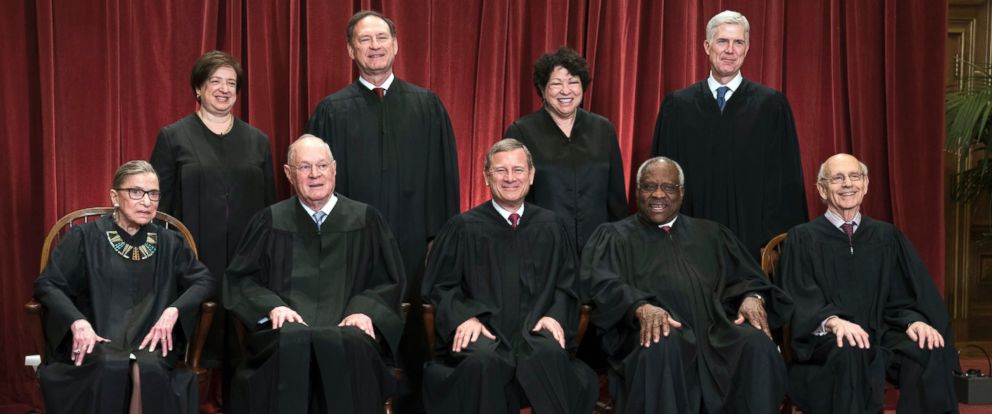As I continue my installments regarding Justice Clarence Thomas, I’ve thought much more about what I want to write about. It seems everywhere I turn I see references to Justice Thomas as “the second African-American Supreme Court Justice”.
I don’t disagree, it is worth noting the accomplishment of stepping closer to equality by having historically discriminated minorities in positions of power. However, why do I see the title constantly written as a caveat or a string attached to his accomplishment?
Articles are seemingly written describing him by the color of his skin, instead of a Supreme Court Justice like the rest of his counterparts. It is almost an insinuation that he is different than Justices beside and before him, aside from Justice Thurgood Marshall (who he is constantly mentioned in the same breath as Justice Thomas for only one reason).
My beef is, many times Justice Thomas is identified as an “African-American Supreme Court Justice” rather than a Supreme Court Justice. Why does the color of his skin matter when it comes to his philosophies on the Constitution? As I see it, equality comes when we are defined as the people we are rather than our skin color.
The same stands for Justice Sotomayor, particularly as a woman of minority heritage. Simply because her skin color is different from the majority of history’s Justices and she is a woman, does that warrant distinction as different from the other Justices?
All Justices are equal - each has one vote. All come from different backgrounds but have the responsibility to interpret the U.S. Law. They didn’t earn that responsibility because of their skin pigmentation but rather their intellect and dedication to upholding the integrity of the U.S. Justice System. There isn’t a need to label Justices Thomas and Sotomayor different than the others.
Does the color of his skin matter when he writes a dissent on Grutter v. Bollinger? (Which you can read here https://www.law.cornell.edu/supct/html/02-241.ZX1.html#FN1SRC)
Oyez.org offers the general overview of the case in better detail, https://www.oyez.org/cases/2002/02-241
For those who won’t read the dissent (it’s long), Grutter v. Bollinger is a case the Supreme Court reviewed which upheld affirmative action programs at the University of Michigan. The case specifically dealt with affirmative action in the admissions process.
Does the fact that Justice Thomas is an African-American change one’s opinion on his dissent? It shouldn’t in my opinion. Affirmative action programs are intended to benefit minorities, but Justice Thomas is a minority yet he opposes affirmative action.
There is no need to distinguish an accomplished white human from a black human or any other combination of skin colors. Identifying people as their skin color only furthers the problem of racism. I don’t see a need to say Justice Thomas is an African-American, rather we should speak of him in the same manner as Justice Alito, Justice Ginsburg, Justice Kennedy or Justice Sotomayor.
Justice Alito is not known as a “white Supreme Court Justice”, Ruth Bader Ginsburg isn’t famous for being white. They’re famous for their accomplishment. Justice Thomas is not an “African-American Supreme Court Justice”, he is a Supreme Court Justice. He is a human. All Justices and people should be identified as humans not their skin color.
The picture comes from http://abcnews.go.com/Politics/meet-sitting-supreme-court-justices/story?id=37229761 which is a nice way to get to know the highest court in the land.
Previous post:
Commented posts:

No comments:
Post a Comment
Note: Only a member of this blog may post a comment.